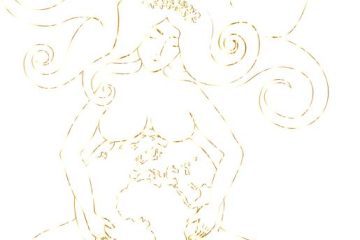Nestled within the pages of the “Gaia Hypothesis” book lies a captivating exploration of the interconnectedness between Earth and all its inhabitants. Join us on a thought-provoking journey through the realms of science and philosophy as we delve into the intricate tapestry of life on our planet. Discover how this seminal work continues to inspire and challenge our understanding of Gaia, the living, breathing entity that sustains us all. Let the whispers of nature guide you as we unravel the mysteries of this profound hypothesis together.
Table of Contents
- Exploring the Fascinating Concept of the Gaia Hypothesis
- Unveiling the Core Principles of the Gaia Hypothesis Book
- Analyzing the Environmental Implications of the Gaia Hypothesis
- Recommendations for Integrating Gaia Hypothesis in Daily Life
- Q&A
- In Summary
Exploring the Fascinating Concept of the Gaia Hypothesis
The Gaia Hypothesis is a thought-provoking concept that suggests the Earth functions as a self-regulating organism, maintaining conditions suitable for life. Imagine a planet where the atmosphere, oceans, and land interact in a complex and interconnected manner, akin to the workings of a living being. This hypothesis challenges our perception of Earth as a mere collection of independent elements, highlighting the intricate balance that sustains life as we know it.
As you delve into books exploring the Gaia Hypothesis, you embark on a journey of discovery and contemplation. Authors delve deep into the notion of Earth as a single, unified entity, emphasizing the interdependence of all living and non-living components. Through vivid narratives and compelling examples, these books invite readers to reevaluate their relationship with the planet and reflect on the profound implications of viewing Earth as a dynamic, evolving system. Embrace the wonder of Gaia and expand your understanding of the interconnected web of life that surrounds us.
Unveiling the Core Principles of the Gaia Hypothesis Book
Discover a fascinating exploration of the interconnectedness between organisms and their environment in the Gaia Hypothesis Book. Delve into a world where ecosystems thrive on harmony and balance, where every living being plays a vital role in sustaining the delicate web of life. Explore the insightful chapters that illuminate the beauty of Gaia theory and its profound implications for our understanding of nature.
Embark on a journey that highlights the notion that Earth itself is a self-regulating, living organism, a concept that challenges conventional views of the planet. Dive into the depths of Gaia’s principles, ranging from dynamic equilibrium to feedback mechanisms, illustrating how nature maintains a delicate balance to ensure the survival and prosperity of all beings. Engage with the thought-provoking content that invites you to rethink your relationship with the environment and appreciate the interconnectedness that defines our existence.
Analyzing the Environmental Implications of the Gaia Hypothesis
When delving into the realm of the Gaia Hypothesis, one must consider the profound implications it holds for our understanding of the environment. This revolutionary concept, proposed by James Lovelock, suggests that the Earth functions as a self-regulating organism, maintaining conditions necessary for life to thrive. With this view, the planet is seen as a complex interconnected system where living organisms and their physical surroundings form a unified whole, influencing each other in intricate ways.
By exploring the Gaia Hypothesis, we are prompted to rethink our relationship with nature and acknowledge the interconnectedness of all life forms. This paradigm challenges traditional views of environmental science and calls for a shift towards a more holistic approach in studying ecological systems. Embracing the Gaia Hypothesis may lead to a deeper appreciation for the Earth’s intricate balance and inspire innovative solutions for addressing environmental challenges.

Recommendations for Integrating Gaia Hypothesis in Daily Life
Incorporating the Gaia Hypothesis into your daily routine can be a transformative experience. Start your day by connecting with nature, whether through a morning walk in the woods or simply enjoying a cup of tea in your garden. **Engage with the living Earth around you and appreciate its interconnectedness with all living beings.**
To deepen your understanding of the Gaia Hypothesis, consider delving into books that explore this concept in depth. Books like “Gaia’s Garden” by Toby Hemenway or “The Web of Life” by Fritjof Capra offer insightful perspectives on how we can live in harmony with the planet. Allow these readings to inspire you to make conscious choices that support ecological balance and sustainability in your daily life.
| Title | Author |
|---|---|
| Gaia’s Garden | Toby Hemenway |
| The Web of Life | Fritjof Capra |
Q&A
Q: What is the Gaia Hypothesis book about?
A: The Gaia Hypothesis book delves into the fascinating concept proposed by scientist James Lovelock, suggesting that the Earth functions as a self-regulating organism.
Q: How does the Gaia Hypothesis book explore the interconnectedness of nature?
A: Through compelling narratives and scientific evidence, the book highlights how various elements of the Earth, such as the atmosphere, oceans, and living organisms, interact to maintain the delicate balance crucial for life.
Q: Can readers expect to gain a deeper appreciation for the environment from reading the Gaia Hypothesis book?
A: Absolutely! The Gaia Hypothesis book invites readers to view the Earth as a complex and interconnected system, fostering a greater understanding and respect for our planet and all its inhabitants.
Q: How does the Gaia Hypothesis book inspire readers to take action towards environmental conservation?
A: By illustrating the intricate relationships within nature and emphasizing the importance of preserving ecological harmony, the book motivates readers to become more mindful stewards of the environment.
Q: What sets the Gaia Hypothesis book apart from other environmental science literature?
A: The Gaia Hypothesis book offers a unique perspective that challenges conventional views of Earth’s dynamics, encouraging readers to contemplate the profound implications of viewing our planet as a living, evolving entity.
In Summary
As we conclude our exploration of the Gaia Hypothesis book, we embark on a journey of reflection and wonder. The intricate connections between our planet and all its living organisms have been unveiled, offering us a glimpse into the harmonious dance of life on Earth. Just as the pages of this book have unfolded before us, revealing the delicate balance that sustains our world, may we carry forth this newfound knowledge with reverence and respect for our planet. Let us continue to ponder the mysteries of Gaia, embracing the beauty and complexity of our interconnected existence. Thank you for joining us on this enlightening quest into the heart of the Gaia Hypothesis. Let the spirit of Gaia guide us in our ongoing quest for understanding and harmony with the natural world.



0 Comments